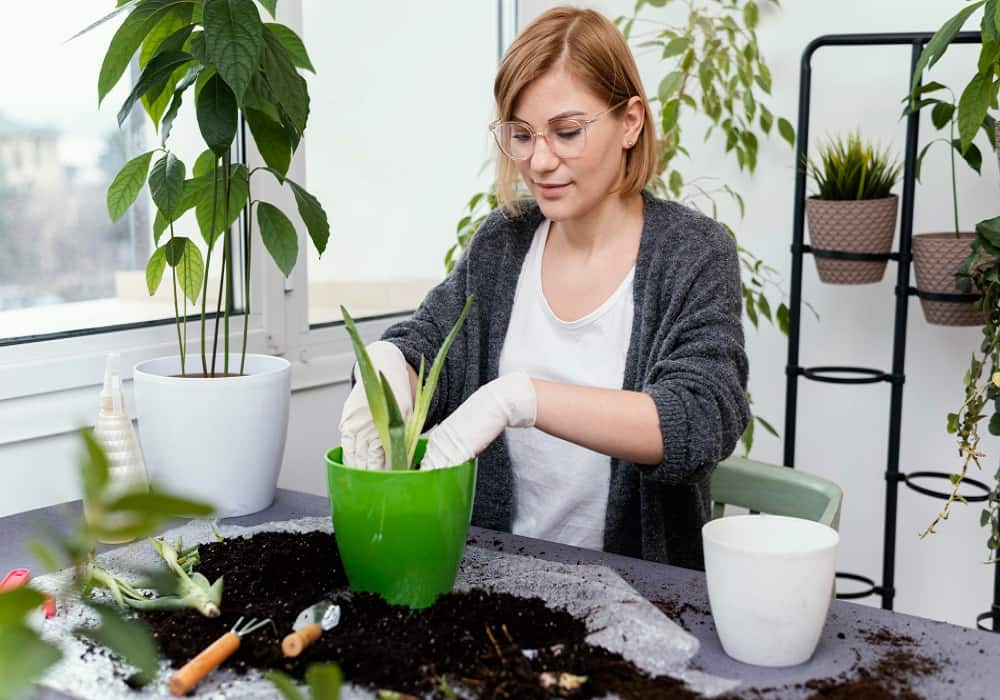10 Expert Tips for Gardening at Home: Your Complete Guide to a Thriving Garden
Gardening at home has grown in popularity as more people look for ways to connect with nature, grow their own food, or simply beautify their living spaces. Whether you’re a beginner or have a bit of experience, there are always new things to learn. With the right approach, you can transform any outdoor or indoor space into a flourishing garden. In this article, we’ll provide expert tips for gardening at home to help you cultivate a thriving garden, no matter your skill level.
1. Start Small and Build Gradually
When beginning your gardening journey, it’s easy to get overwhelmed by the wide variety of plants and gardening techniques available. Start with a small space or a few pots, focusing on easy-to-grow plants that suit your environment. Gradually, as you gain confidence and experience, you can expand your garden with more diverse plant selections. This method allows you to learn the basics without feeling overwhelmed.
2. Choose the Right Plants for Your Environment
One of the most important tips for gardening at home is selecting plants that thrive in your climate and space. Consider factors such as sunlight, temperature, and humidity when choosing what to plant. For instance, if you live in a dry, sunny region, opt for drought-tolerant plants like succulents, cacti, or Mediterranean herbs like rosemary and thyme. If you have a shady garden, ferns, hostas, and impatiens might be better options.
3. Optimize Your Soil Quality
A good garden starts with healthy soil. Test your soil to find out its pH and nutrient content before you plant. Based on the results, you can amend your soil with organic matter like compost or manure to improve its structure, drainage, and fertility. Healthy soil provides the nutrients your plants need to grow strong and resistant to pests and diseases.
For container gardening, using high-quality potting soil is essential. Avoid garden soil, as it may compact in pots, leading to poor root development and water drainage issues.
4. Watering Wisely
Proper watering is a crucial aspect of gardening success. Overwatering is a common mistake that can lead to root rot, while underwatering may cause your plants to dry out. Here are some tips for effective watering:
- To minimize evaporation, use water in the early morning or late at night.
- Focus on the roots, not the leaves, to ensure that the plant’s base gets sufficient moisture.
- Use a soaker hose or drip irrigation system for a consistent water supply.
- Check the soil regularly to ensure it is moist but not soggy.
5. Make the Most of Vertical Space
For those with limited ground space, vertical gardening can be a game-changer. Utilize walls, fences, and trellises to grow climbing plants like beans, cucumbers, and tomatoes. Hanging baskets and wall-mounted planters are also excellent ways to increase your planting area without taking up floor space. Vertical gardening not only maximizes your space but also adds aesthetic appeal to your home garden.
6. Provide Adequate Sunlight
Photosynthesis, the process by which plants make food, depends on sunlight. For optimal growth, most plants require a minimum of 6-8 hours of sunlight daily. However, some plants, like lettuce, spinach, and certain herbs, prefer partial shade. Observe your garden space throughout the day to determine how much light it receives and plant accordingly. If you have limited sunlight, consider growing shade-loving plants or using grow lights for indoor gardening.
7. Use Mulch to Retain Moisture and Control Weeds
Mulching is one of the best tips for gardening at home, especially in hotter climates. Mulch controls soil temperature, inhibits weed growth, and helps keep the soil moist. Organic mulches like straw, leaves, or wood chips also decompose over time, adding nutrients to your soil. Apply a 2-3 inch layer of mulch around your plants, leaving some space around the base to prevent stem rot.
8. Fertilize Regularly for Healthy Growth
Plants need a steady supply of nutrients to grow, and over time, your soil may become depleted. Regular fertilizing helps replenish lost nutrients and promotes vigorous growth. Organic fertilizers like compost, fish emulsion, or worm castings are great options, as they improve soil health while providing essential nutrients. Be sure to follow the recommended dosage to avoid over-fertilizing, which can harm your plants.
For container gardens, fertilizers are even more crucial, as potting soil can lose nutrients quickly. Use slow-release or liquid fertilizers to maintain a steady nutrient supply.
9. Keep an Eye on Pests and Diseases
Even with the best care, your garden may face pest and disease issues. It’s important to regularly inspect your plants for any signs of trouble, such as yellowing leaves, chewed foliage, or discolored spots. If you notice pests like aphids, caterpillars, or slugs, try using natural remedies such as neem oil, insecticidal soap, or diatomaceous earth.
Preventative measures are always the best approach. Maintain good air circulation, avoid overcrowding plants, and remove dead or diseased foliage to reduce the risk of pest infestations and diseases.
10. Be Patient and Stay Consistent
Gardening is a rewarding but slow process that requires patience and consistency. Plants take time to grow, and not every plant will thrive immediately. Regularly tending to your garden, monitoring its progress, and making adjustments will help you develop a thriving garden over time. Celebrate small victories like the first sprout or harvest and learn from any setbacks.
Conclusion
Gardening at home can be a fulfilling and relaxing hobby that enhances your living space and provides fresh produce or beautiful flowers. By following these expert tips for gardening at home, you can create a flourishing garden, whether it’s in a small urban space, a balcony, or a larger backyard. Start small, choose the right plants, care for your soil, and be consistent in your efforts. With time and patience, you’ll soon enjoy the fruits (and flowers) of your labor!






